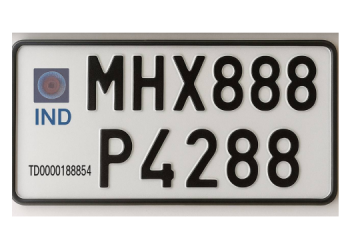Getting a personal loan of ₹20 Lakhs can be a significant financial decision. Understanding the eligibility criteria is crucial to ensure a smooth application process. You can use a personal loan eligibility calculator to check whether you qualify for a ₹20 Lakhs personal loan. Let’s break down the key factors that lenders consider when you apply for a personal loan.
1. Age Requirement
Most lenders have an age bracket for personal loan applicants. Typically, the minimum age is 21 years, while the maximum age is around 60 years. This range can vary slightly between lenders. Ensuring you fall within this bracket is the first step to qualifying for a personal loan.
2. Employment Status
If you are a salaried employee, lenders will look for steady employment. Generally, you should have at least one year of continuous employment. Many lenders prefer applicants who have been with their current employer for at least six months.
For self-employed applicants, lenders seek stable business operations. You should have been in business for at least two years. Additionally, consistent and reliable income over this period is essential.
3. Income Criteria
Your income plays a significant role in the loan approval process. Lenders need assurance that you can repay the loan. As a rule of thumb, your monthly income should be at least ₹25,000 to ₹30,000. Higher income increases your chances of getting a larger loan amount approved.
4. Credit Score
A good credit score is one of the most critical personal loan eligibility criteria. A score above 750 is often considered excellent. It reflects your creditworthiness and reliability in repaying loans. If your score is below this, it might be beneficial to improve it before applying. Pay off existing debts and ensure timely payments on current loans or credit cards.
5. Debt-to-income (DTI) Ratio
Lenders assess your debt-to-income ratio to understand your current financial obligations. This ratio is the percent of your monthly income that is used to repay your debts. A low ratio indicates better financial health. Ideally, your debt-to-income ratio should be below 30%. This shows lenders that you have enough income left to manage a new loan.
6. Work Experience
For salaried individuals, work experience is also scrutinised. Having a stable job history with minimal job changes is favourable. Lenders prefer applicants who demonstrate job stability. For self-employed individuals, the focus is on how long you have been running your business successfully.
7. Loan Purpose
While personal loans are often versatile, some lenders inquire about the purpose. This helps them gauge the risk involved. Whether it’s for medical expenses, education, or home renovation, having a clear and legitimate reason can support your application.
8. Relationship with the Lender
Existing customers with a good history with the lender have a slight advantage. If you have a savings account, credit card, or previous loan with the lender, it can work in your favour. A positive banking relationship often results in better loan terms and faster approval.
9. Documentation
Proper documentation is crucial for loan approval. Here are the typical documents required:
- Proof of Identity: Aadhar card, PAN card, passport, or voter ID
- Proof of Address: Utility bills, rental agreement, or passport
- Income Proof: Salary slips, bank statements, or ITR for self-employed
- Employment Proof: Offer letter, appointment letter, or business registration documents
Ensure these documents are up-to-date and accurate.
10. Co-applicants
If you have a low credit score or insufficient income, consider adding a co-applicant. A co-applicant with a strong financial profile can enhance your loan approval chances. Both applicants’ income and credit profiles are considered, increasing the likelihood of approval for a higher loan amount.
Additional Factors That May Affect Your Loan Eligibility
- Employer’s Reputation: Working with a reputed company can be beneficial. Lenders often have pre-approved offers for employees of certain organisations.
- Existing Liabilities: Any existing loans or debts will be considered. Ensure that your liabilities are not overwhelming compared to your income.
- Loan History: A positive loan repayment history improves your credibility. If you’ve previously taken and repaid loans on time, it reflects well on your financial management.
Tips to Improve Eligibility
Here are some things you can do to boost your personal loan eligibility:
- Improve Your Credit Score: Regularly check your credit report for errors. Pay off outstanding debts and avoid missing payments.
- Increase Your Income: Additional sources of income can strengthen your application. Freelance work, part-time jobs, or a raise at work can help.
- Reduce Existing Debt: Lower your debt-to-income ratio by clearing existing loans or debts
- Maintain Job Stability: Avoid frequent job changes, as stability is a crucial factor
Keep Documents Ready: Ensure all required documents are updated and organised for a smooth application process
Securing a ₹20 Lakhs personal loan requires meeting several eligibility criteria. Age, income, credit score, and employment status are significant factors. Additionally, your debt-to-income ratio, job stability, and proper documentation play vital roles. By understanding and improving these aspects, you can enhance your chances of approval. Remember to evaluate your financial capacity and opt for a loan amount and tenure that you can comfortably manage.


















